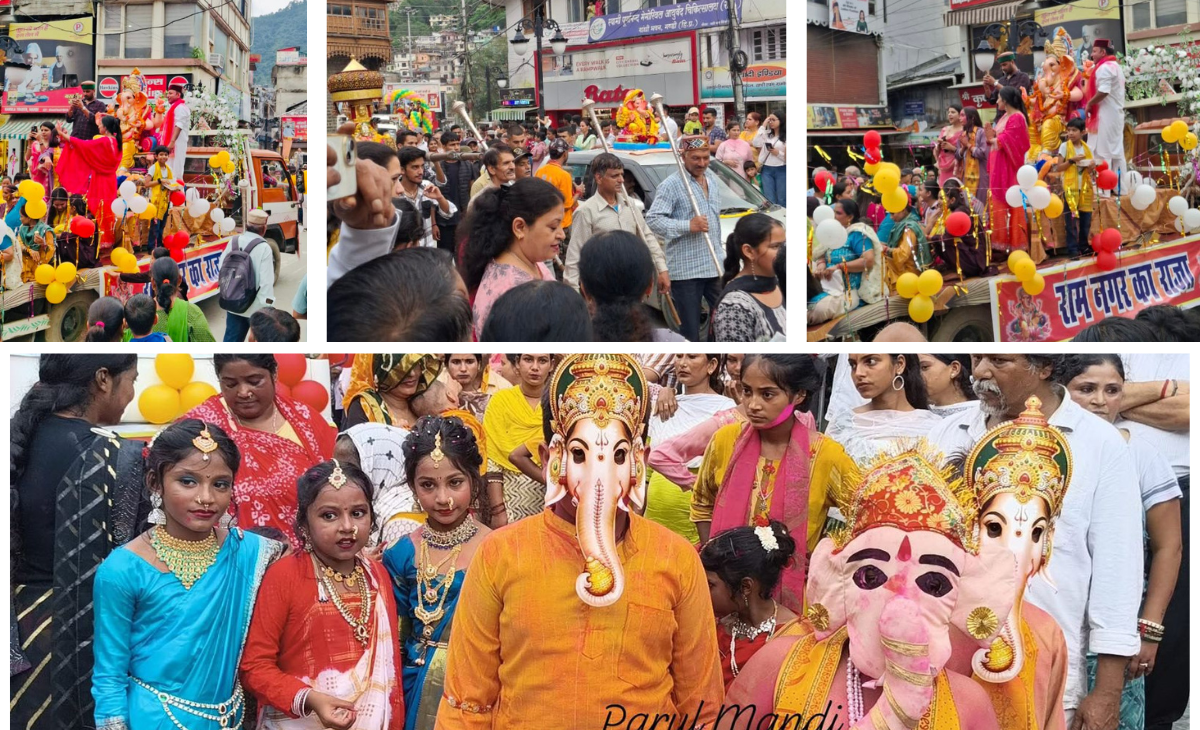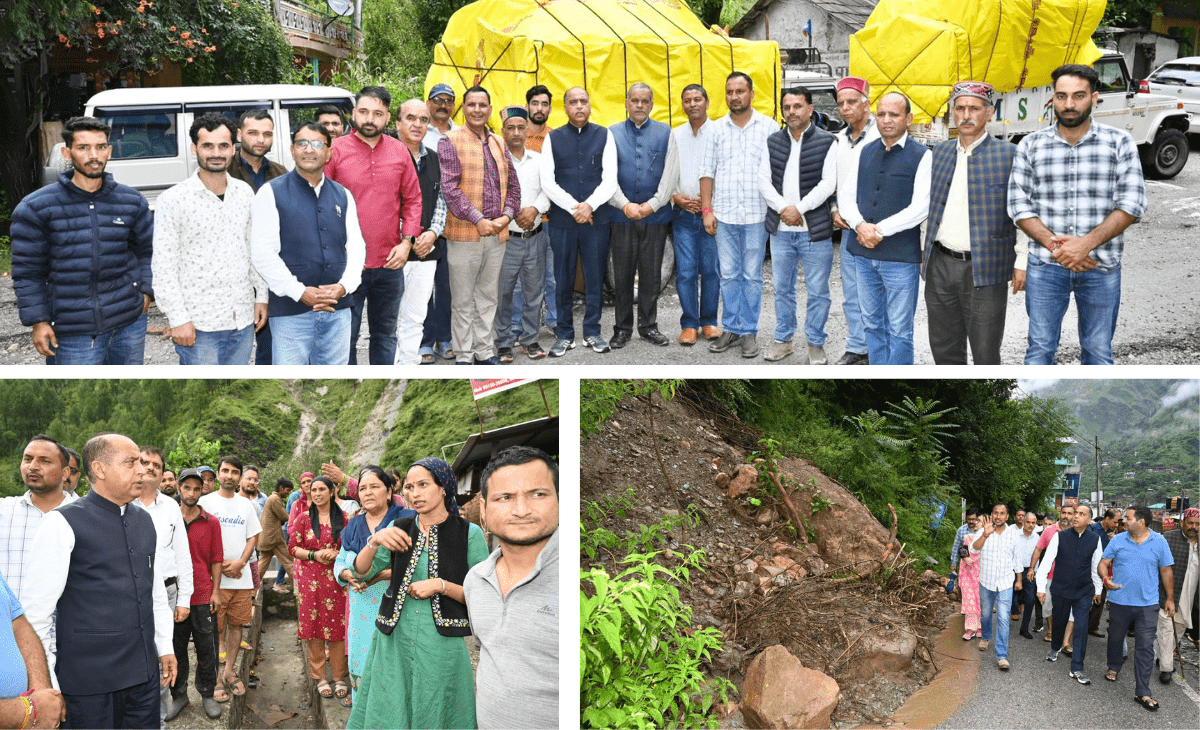Munish Sood
MANDI: For the first time, religious organisations in Himachal Pradesh’s Mandi town that traditionally install Ganesh idols during Ganesh Chaturthi are visibly divided over the practice of Ganesh Visarjan.
The long-simmering debate over whether immersion should be performed in Himachal seems to have come to the surface this year, with prominent youth groups openly refusing to continue the ritual.
The Veer Yuva Mandal of Mandi, along with other youth groups from Samkhetar, have declared that they will not carry out immersion this year. Speaking to The Newz Radar, Veer Mandal president Hitesh Vaidya said that after consulting all members, they decided to put an end to the ongoing dispute by discontinuing the practice of immersion.
“We will organise the traditional procession as always, but instead of immersion, Lord Ganesha will be permanently installed in our ‘sarai’ (community hall). The same idol will be worshipped every year until it naturally deteriorates. This time, there will be no Visarjan,” Vaidya confirmed.
Those swearing by tradition stand firm
On the other hand, Shri Siddh Ganpati Trust, which has upheld immersion traditions for 37 years, refuses to abandon it. Trust secretary TC Patial said, “Ganesh Puja and Visarjan have been integral to Siddh Ganpati since its inception. Such traditions cannot be altered overnight. In Sanatan Dharma, every idol installed for worship must be ceremonially concluded with immersion in water. This is not optional.”
Patial said that Siddh Ganpati is one of the five recognised Siddh Ganpatis in India. “For 10 days, Lord Ganesha absorbs the sorrows of devotees. Immersion in water is a ritual purification that releases Him from this burden. Without it, the cycle of worship is incomplete.”
Priest issues strong warning
Adding another dimension to the debate, renowned priest and astrologer Hemant Sharma issued a stern caution. Speaking to The Newz Radar, Sharma said, “In a state like Himachal, where divine presence is deeply rooted in the mountains, such deviations in rituals are bound to invite consequences. Disasters in the Himalayas may very well be linked to how we play with the sentiments of gods in the name of religion and belief. We must stop such practices and let God reside in peace. Only then will He allow us to live happily. Otherwise, dancing to loud music and mocking deities in processions is nothing short of disrespect.”
Ganesh Utsav, originally popularised in Maharashtra by Lokmanya Tilak during the British Raj, gradually spread to other parts of the country, including Himachal Pradesh.
In Mandi, also called Chhoti Kashi, the festival gained ground over the last few decades. However, unlike Maharashtra, where immersion symbolises the deity’s farewell, many locals in Himachal argue that Ganesha’s “home” is the Himalayas itself. Sending Him away from His birthplace through immersion, they say, is inappropriate.
Divide spills over to social media
The divide has spilled over to social media where heated discussions portray a near consensus among common citizens opposing immersion. The majority opinion insists that Lord Ganesha should remain in His own abode rather than being “bid farewell” from the Himalayas. Memes, posts and religious commentaries have flooded platforms, with many linking the region’s recent spate of natural calamities to neglect or misinterpretation of traditional beliefs.
Meanwhile, the founder of Ganesh Mahotsav in Mandi, Sanjeev Shastri, has announced a unique decision for this year’s celebrations. Breaking tradition, he declared that he will not immerse the idol of Lord Ganesha in the Beas.
Instead, Shastri will perform the ritual by immersing a sacred thread (Janeu), betel nut and a green coconut. He has appealed to all other organisers in Mandi and nearby areas to adopt the same practice. According to him, the move is aimed at protecting water bodies and promoting conservation.
The initiative comes amid growing concerns over river pollution and water scarcity in the Himalayan region. Shastri stressed that devotion lies in faith and prayers, not in practices that harm nature.
Environmental groups in Mandi have welcomed the decision, calling it a step towards sustainable festivities. Locals are divided, with some hailing the move as progressive while others see it as a break from tradition. The development has sparked debate across town and on social media platforms.





